Fr. Leocir Pessini
Superior General of the Camillians
Rome, 8 December 2018
Feast Day of the Immaculate Conception of Mary
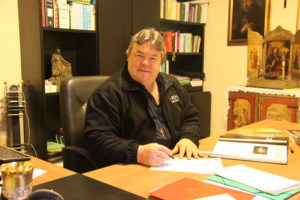 This book, entitled ‘Bioethics in a Time of Uncertainty and Perplexity and Hope’, brings together a number of texts which have already been shared in digital form through the monthly Camillian Newsletter (the world seen from Rome…and Rome seen from the world) and in the quarterly bulletin of the Order, Camilliani/Camillians, published in Italian and English, the two official languages of the Order.
This book, entitled ‘Bioethics in a Time of Uncertainty and Perplexity and Hope’, brings together a number of texts which have already been shared in digital form through the monthly Camillian Newsletter (the world seen from Rome…and Rome seen from the world) and in the quarterly bulletin of the Order, Camilliani/Camillians, published in Italian and English, the two official languages of the Order.
These reflections of a bioethical character, which also contain the ethical outlook of Camillian pastoral care, were born from contact with, and knowledge of, the various and plural realities of the world during a series of journeys. These took place during my mandate of service for the Order in the period 2014-2019 on the occasion of my visits to Camillian communities that work in the field of health and care for the sick in forty-one countries of the five continents of the world: Africa (Benin, Togo, Burkina Faso, the Central African Republic, Kenya, Tanzania, Uganda, the Ivory Coast and Madagascar); Asia (Thailand, Vietnam, mainland China, Taiwan, the Philippines, India, Indonesia and Australia); Latin America (Brazil, Argentina, Bolivia, Peru, Ecuador, Colombia and Mexico); and South America (the United States of America), without mentioning various European countries in which the Camillians are present, principally Italy – the cradle of the Order.
Our Order of Camillians has borne witness for over four centuries to the heroic spirit of Samaritan service (martyrs to charity) in the health-care world towards those who have been assaulted on the road of life; towards human illness, pain and suffering. The strong image of which we have been the custodians down history is to take care of the body and the spirit of a human being who is lying on a bed or stretched out upon the ground.
Today we have before us the urgent need to put this human being ‘back on his feet’, fully alive and healthy. This is to carry out the message of the good shepherd: ‘I came so that all may have life, and have it in abundance’ (Jn 10:10), without depriving anyone of Samaritan care. You need a great deal of determination to take on the responsibility for implementing a Copernican paradigmatic revolution in the world of health and health care in which we work and inside our own health-care works. The gift of health constitutes ‘the authentic infrastructure of human fullness and happiness’.
Until a short time ago, there was little scientific knowledge about the prevention of illness. Thanks to the development of technology in the field of health and health care, and new knowledge in the field of public health, today we are more aware of the value of the prevention of the most common illnesses that still afflict millions people every year in the world, in particular children, the most vulnerable individuals.
Today when reference is made to an effective presence in the complex world of health and health care, experts remind us of the need to act in at least five strategic fields: 1. promoting a healthy life; 2. preventing illness; 3. caring for the sick; 4. rehabilitating and treating the consequences of illness; 5. implementing health-care systems in line with the spirit of palliative care.
This agenda of subjects radically involves our Camillian ministry in the fringes of the planet, in Africa, Asia and Latin America. Spiritual care is not enough: we need to have the courage to go beyond this, to act prophetically in the public health polices of various countries and in public and private institutions in order to make them more effective and efficient in meeting the health needs of the population, in particular people who are most vulnerable people and who live in precarious conditions of life.
Naturally, our health-care institutions should be an example from this point of view, otherwise their existence would run the risk of not being justified in evangelical terms. Without ever forgetting the man stretched out upon the ground who is suffering, together with this dimension of solidarity we must also fight prophetically to ensure that man does not fall sick. Education in health, in addition to health care, plays a crucial role in this context!
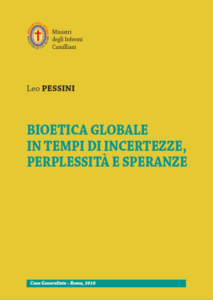 Our bioethical approach is profoundly marked by the fringes of the world. We perceive a deep oppositional tension between the various socio-cultural horizons in which humanity lives today, in particular as regards the reality of Asia which is very different and original compared to the Western world. Inside this environment, we Camillians find that we live as moral strangers (cf. T. Engelhardt) from a religious, social, cultural, political and historical point of view, and this dynamic generates in us a profound existential anxiety and tribulation. This creative anxiety turns out to be not pathological: it has not paralysed us, rather it has mobilised our interior forces, generating healthy existential disquiet and expanding our horizons beyond our short-sighted boundaries.
Our bioethical approach is profoundly marked by the fringes of the world. We perceive a deep oppositional tension between the various socio-cultural horizons in which humanity lives today, in particular as regards the reality of Asia which is very different and original compared to the Western world. Inside this environment, we Camillians find that we live as moral strangers (cf. T. Engelhardt) from a religious, social, cultural, political and historical point of view, and this dynamic generates in us a profound existential anxiety and tribulation. This creative anxiety turns out to be not pathological: it has not paralysed us, rather it has mobilised our interior forces, generating healthy existential disquiet and expanding our horizons beyond our short-sighted boundaries.
Codifying these reflections in an ethical key has been a healthy pathway of a therapeutic value, involving attempt to pour a little balsam on these tribulations about human sensibilities ‘wounded’ by terrible affirmations and negations of life itself: the contrast between abundance and a scarcity of goods; the comfortable existence of a few people who are insensitive to the risk of survival suffered by many; the sensitivity of many and the indifference of many!
And we ask ourselves: in the near future will we live in a more just, more supportive and more fraternal society and world? Will the so-termed ‘globalisation of solidarity’, which Pope John Paul II spoke about so much, not perhaps be a utopian mirage on the horizon? Pope Francis with his prophetic voice never tires of crying out and denouncing these tragic paradoxes during his international journeys, taking various opportunities to speak in various international contexts, inviting people to be vigilant and prudent to ensure that globalisation is not a multiplier with dramatic effects of exclusion, indifference and inequality in the world.
I thought that it would be suitable and useful to publish together in a single volume five essays of a bioethical character which were drawn up during my period of government of the Order, not least in order to offer a more integrated and organised vision of the ethical challenges which, in my view, are crucial for the future of humanity.
The new scenario brought about by biotechnologies has inevitably had a great resonance and provoked important thought about its unpredictable consequences, for our lives as well. We therefore need to cultivate vigilance, prudence and ethical wisdom in order to address these subjects with the necessary peace of mind. The creation has been placed in our hands? What will humanity do with the work of creation?
The ecological and prophetic encyclical of Pope Francis, Laudato si’, has already pointed out to us some warnings and directed us towards some approaches that we cannot ignore if we want to construct a promising future for life and for humanity.
The Thematic and Aesthetic Architecture of the Work
The architecture and the aesthetic welding of this publication are organised according to a precise thematic order. The work begins with a proposal about the meaning and value of global bioethics (I). This is followed by the difficult anthropological question, the search for a new human being in the twenty-first century, in times that are fascinating for post-humanism (II).
Then I engage in a re-reading of the role of science today (the re-creation of life?) starting with a study of Frankenstein by the English author Mary Shelley. The year 2018 was the two-hundredth anniversary of its publication (III). I also look to the construction of a future of hope, precisely at a historical moment when a return to the past is feared (cf. Retrotopia by Zygmunt Bauman) (IV).
For us Camillians, the question of human health is at the centre of our charismatic identity. The challenge is to broaden our vision of health which should be no longer limited to the individual but, rather, should include all living beings, embracing humanity in its interaction with cosmic, environmental and ecological reality. In addition to public and global health, planetary health (a phrase coined at Harvard University in 2015) is also addressed (V).
 The rapid ageing of the world’s population has caused profound changes and has introduced elements of political-economic crisis into public policies relating to health care in the majority of countries of the developed world. Human beings live longer today but at the same time they have to face the challenge of ‘adding more life to the years’. I offer some data on the current reality of human ageing and longevity in the world through an ethical and pastoral approach to our elderly and sick (VI).
The rapid ageing of the world’s population has caused profound changes and has introduced elements of political-economic crisis into public policies relating to health care in the majority of countries of the developed world. Human beings live longer today but at the same time they have to face the challenge of ‘adding more life to the years’. I offer some data on the current reality of human ageing and longevity in the world through an ethical and pastoral approach to our elderly and sick (VI).
The next essay is of a humanistic character with some pastoral and ethical guidelines for a good Samaritan accompanying for elderly people and the terminally ill (VII).
Lastly, I could not develop any provocation about the future of bioethics and bioethics of the future (VIII) without analysing ‘excluding’ globalisation, yet also continuing to sow our hope, directed towards the construction of a future that is promising for everyone.
At the end of this book there is a special section with four appendices:
- The Declaration of Astana: the Pathway to Universal Health Care in the World.
- Amazonia: the Urgent Need for Ecological Ethics and the Promotion of Integral Ecology.
- A Tribute to Iomerê (SC, Brazil): a Setting for the Birth of the First Generation of Brazilian Camillians.
- To Know about the Author and his Principal Academic and Scholarly Works.
The aim of this work includes offering an aesthetically pleasing graph that is able to capture the attention of the reader with emblematic images of the subjects that are addressed and facilitate in an effective way an understanding of the subjects discussed. Beauty leads us into, and always raises us up to, the transcendent dimension of our lives. Dostoevsky himself observed that ‘beauty will save the world’.
I wish the reader a happy reading of this volume, which I hope will of help at the level of analysis, so that amidst uncertainty and perplexity we can always be the champions of ethical hope!
Lastly, I wish to express especial thanks to the members of the General Consulta of the Order Fr. Laurent Zoungrana, the Vicar General; Fr. Aris Miranda, who is responsible for ministry; Br. José Ignacio Santaolalla, the financial administrator who is also responsible for missions; and Fr. Gianfranco Lunardon, the Secretary General.
For me it is a privilege and honor to share with you the service of authority for the religious of our Order, in union, communion, freedom, mutual trust and evangelical transparency.
This publication was able to see to the light of day because of your cooperation as well. God bless you!








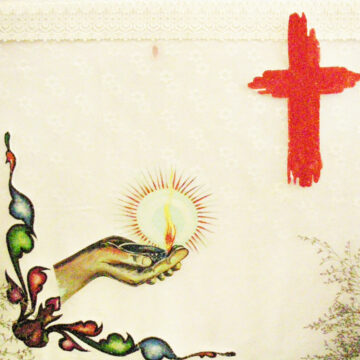
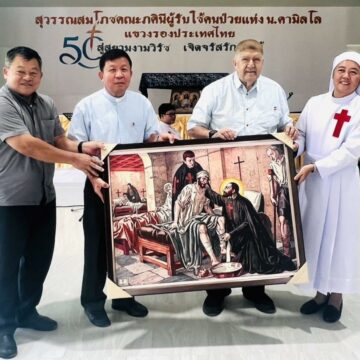
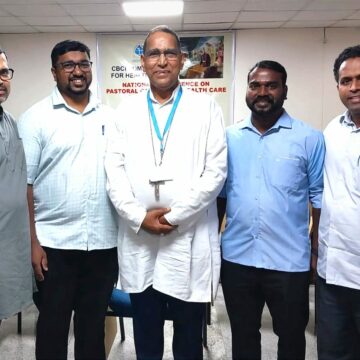
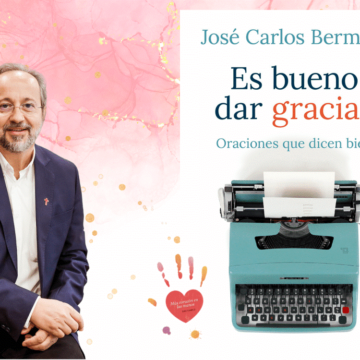

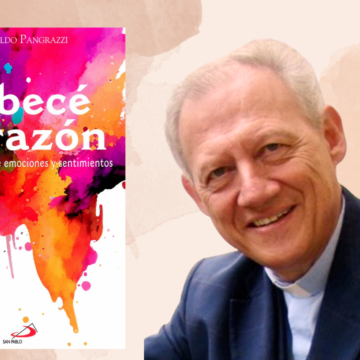
Camillians on Facebook
Camillians on Twitter
Camillians on Instagram